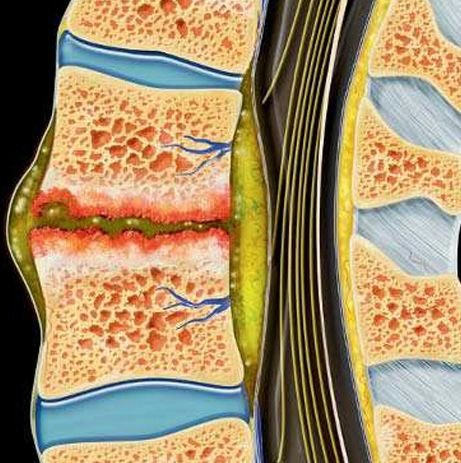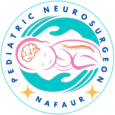Spinal Epidural Abscess (SEA)
Spinal Epidural Abscess (SEA)
A Pediatric Spinal Epidural Abscess (SEA) is a rare but life-threatening condition in children characterized by the accumulation of pus or infected material in the epidural space of the spine. This collection exerts pressure on the spinal cord and nerve roots, which can lead to irreversible neurological damage or paralysis if not urgently treated. In the Bangladesh context, where infectious diseases remain common and spinal infections are frequently misdiagnosed, awareness and early referral to a pediatric neurosurgeon are critical. Dr. Md. Nafaur Rahman, a renowned expert in pediatric spinal surgery, offers state-of-the-art diagnostic, surgical, and post-operative care for spinal epidural abscesses in children across the country. 🌍 Pediatric SEA in Bangladesh: A Critical but Treatable Emergency In Bangladesh, pediatric SEA often goes undetected or misdiagnosed due to: Low suspicion of spinal infections in febrile children Limited access to MRI and neurosurgical evaluation, especially in rural settings Late referral after onset of neurological deficits Overuse or underuse of antibiotics without proper diagnosis Underlying factors like malnutrition, tuberculosis, or poor hygiene Dr. Nafaur Rahman stresses that rapid recognition, proper imaging, and early surgery are key to preserving neurological function in these patients. ⚠️ Clinical Signs & Symptoms of Pediatric SEA SEA can present subtly at first but rapidly progress to neurological emergency. Watch for: 🌡️ High-grade fever with or without chills 🧍 Back pain, especially localized and increasing in severity 🚷 Refusal to walk, sit, or bear weight 😖 Neck or back stiffness in cervical or thoracic involvement ⚡ Radiating limb pain or numbness 🧑🦽 Sudden onset of weakness or paralysis in arms or legs ⚠️ Loss of bladder or bowel control – a red flag for spinal cord compression 🧒 Increased irritability or crying in infants “The window for saving a child from paralysis in spinal epidural abscess is narrow. If weakness appears, surgery must not be delayed.” — Dr. Md. Nafaur Rahman 🧬 Common Causes & Risk Factors in Bangladeshi Children Bacterial infections (most commonly Staphylococcus aureus) Spread from skin boils, respiratory tract, or urinary infections Post-surgical wound infection Penetrating spinal trauma or injection Spinal tuberculosis (TB) – especially common in Bangladesh Malnutrition or immunodeficiency Inadequate or delayed antibiotic therapy 🧪 Diagnostic Investigations Dr. Nafaur Rahman follows an urgent, evidence-based diagnostic protocol: 🧲 Imaging: MRI of the whole spine with contrast – Gold standard CT scan – Useful if MRI unavailable or to assess bony involvement X-ray – May show late bone destruction 🧪 Laboratory: CBC – raised WBC ESR, CRP – elevated in most cases Blood culture – identifies causative organism Pus culture (intraoperative or needle aspiration) TB screening – Mantoux, GeneXpert, chest X-ray (if TB suspected) 🛠️ Treatment of Pediatric Spinal Epidural Abscess 🩺 Conservative Management: Only for cases without neurological symptoms and small abscesses: High-dose IV antibiotics for 4–6 weeks Bed rest and close neurological monitoring Repeat imaging to assess resolution 🔧 Surgical Management: Surgery is urgent in children with: Neurological weakness Large abscess compressing spinal cord Spinal instability or TB involvement No response to antibiotics within 48 hours Dr. Nafaur Rahman’s surgical approach includes: Laminectomy or laminotomy for abscess drainage Debridement of infected tissue Spinal stabilization in advanced or TB cases Minimally invasive spine surgery when appropriate for faster recovery Biopsy for accurate diagnosis “Delay in decompression leads to irreversible paralysis. Surgery is not an option—it’s a necessity in neurological cases.” — Dr. Md. Nafaur Rahman 🔁 Post-Treatment Recovery & Follow-Up Close monitoring with MRI and inflammatory markers Continued antibiotic therapy guided by culture Spine bracing if instability noted Pediatric physiotherapy for mobility and strength recovery Speech and occupational therapy if neurological deficits exist Nutritional rehabilitation and immunological workup 🚨 Complications of Delayed or Inadequate Treatment 🧑🦽 Permanent paralysis or weakness 🔄 Recurrence or chronic infection 💀 Sepsis or systemic infection 🦴 Vertebral destruction and spinal deformity 🛌 Long-term disability, school dropout, social exclusion 👨⚕️ Why Trust Dr. Md. Nafaur Rahman for Pediatric SEA? 🧠 Bangladesh’s leading pediatric neurosurgeon specializing in spinal infections 🏥 Practicing at NINS – the country's top neuroscience facility 🧒 Child-focused care with advanced diagnostic and surgical techniques 🔬 Combines neurosurgery, infectious disease care, and rehabilitation under one roof 🌟 Track record of saving hundreds of children from spinal infections and disability 📞 Contact Now for Expert Pediatric Spine Infection Care Dr. Md. Nafaur Rahman Assistant Professor, Pediatric Neurosurgery, NINS Chief Consultant, Bangladesh Paediatric Neurocare Centre 📞 Serial/Appointment: 01912988182 | 01607033535 🌐 Website: www.neurosurgeonnafaur.com
Spinal Epidural Abscess (SEA)


